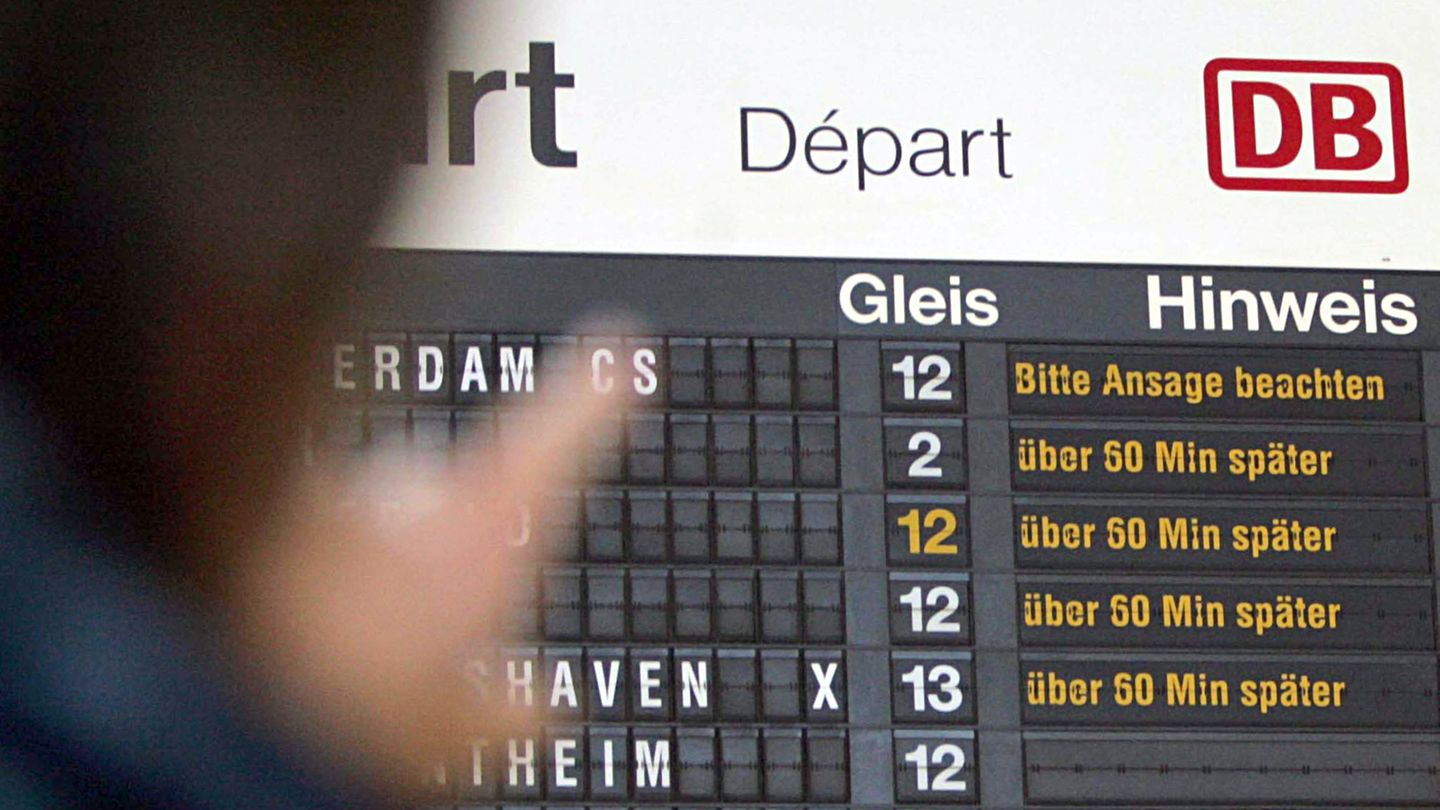In 2022, a particularly large number of trains were late – so Deutsche Bahn had to make a record amount of compensation payments, according to “Capital” information. Now she is working on a new goodwill arrangement.
By Monica Dark
Because delays are increasing, Deutsche Bahn had to pay out a record amount of passenger compensation last year. According to information from “Capital”, reimbursements rose to EUR 92.7 million and were two and a half times as high as in the previous year, when EUR 38.2 million were paid out.
3.4 million people received a refund, more than ever before – according to Deutsche Bahn, 3.8 million cases were processed in total in 2022. The main reason for the record numbers is the overloaded and dilapidated rail network, which is increasingly experiencing disruptions and breakdowns. The punctuality rate in long-distance transport last year was only 65.2 percent.
The last time the values were worse was in 2010, when Germany experienced snow chaos in winter and many trains were canceled or arrived significantly late. In 2021, 75.2 percent of all long-distance trains reached their destination on time, in the first Corona year 2020 it was almost 82 percent. Personal injury and cable theft, on the other hand, rarely contribute to unpunctuality, according to a company spokeswoman.
Deutsche Bahn plans new regulation for delays
When it comes to the amount of compensation, Deutsche Bahn is guided by EU law. In passenger transport, for example, it reimburses a quarter of the ticket purchase price for delays of 60 minutes or more, and half for delays of two hours or more. From the point of view of consumer advocates, the compensation should take effect from 30 minutes and therefore be higher in view of the many construction sites and the persistently high delays.
Climate-friendly travel
Excursion tips by train from Cologne, Munich, Hamburg and Berlin – you can reach these great destinations in (less than) 5 hours
What rights passengers will be entitled to in the event of delays is currently under discussion. According to an EU regulation, the claims of rail passengers are to be significantly restricted in some cases: analogous to air travel, claims for compensation in “extraordinary circumstances” then no longer apply. In the event of extreme weather or major natural disasters, the railways would no longer have to pay; even if people on the tracks prevent the journey from continuing or if cables are cut, it would no longer be an obligation.
The new EU passenger rights will come into force in June. According to “Capital” information, Deutsche Bahn is already working on a “generous goodwill arrangement”: It is said that customers do not want to be expected to do any more.
Source: Stern




